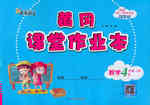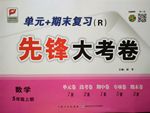题目内容
In addition to the need for food, man also has need of some kind of protection from heat and cold and from wind and rain. The first homes of man were very simple. The size and kind of buildings which he built were limited by his technical knowledge and also by the kind of building materials which were available (可得到的) to him. Climate also had an important influence. In some places, man's home would be nothing more than a cave in the side of a hill, with a fire at the entrance to give light and warmth and to keep dangerous wild animals away. In warmer areas primitive man (原始人) could use branches to make a framework (框架) which he then covered with leaves.
The community’s way of life was another important influence on the kinds of houses which were built. For example, a hunting society had to move frequently from one place to another to find its food. Therefore, the houses of the people of a hunting society were made so that they could be moved easily. An agricultural society would probably stay in one place for a long time. The homes of these people could be more permanent.
When settlements grew larger and civilization (文明) became more complex (复杂的), other differences developed in buildings. The most important men in the village, or the men with more property probably had larger and better homes. There were also buildings constructed for special purposes: some kind of large building for public meetings;shops and offices for commercial (商业的) activities;schools, churches, hospitals, theaters, jails or prisons, and many other specialized structures.
The technical knowledge and skill of the twentieth century makes it possible for man to build structures which would have been impossible a hundred years ago. Construction is now an important industry. As the population of the world grows, more and more buildings of many different kinds will be needed. In planning the construction of these buildings, architects (建筑师) will be using knowledge gained through centuries of experience. At the same time they will be utilizing new materials and developing new methods and techniques in order to meet the needs of still larger and more complex societies.
1.The first homes of man were very simple
A.because he did not have fire.
B.because he did not know how to build very well
C.because he had no furniture.
D.because he had no building materials at all.
2.When people of a hunting society built houses
A.they built permanent homes.
B. they always built houses in trees if possible.
C. they built houses that could be moved easily.
D.they made use of caves in hills.
3.Men began to construct buildings for special purposes
A.when civilization became more complex.
B.when caves were no longer available.
C.when men with property wanted larger homes.
D.when important men wanted better homes.
4.Man could not build very tall buildings a hundred years ago
A.because he had no need for them.
B. because there wereno architects a hundred years ago .
C. because he did not yet have the technical knowledge .
D. because he did nothave enough building materials .
5.To meet the needs of future generations for different kinds of shelter
A.architects will no longer use methods and techniques they use today.
B.architects will need to develop new techniques.
C.architects will need to use new building materials.
D.both B and C.
6. A best title for this text would be
A.The Importance of Architects.
B.The Importance of Technical Knowledge.
C. The Development of Civilization.
D. The Development of Man’s Shelter.
解析:
|
这个阅读语篇很长,即使压缩改写部分的听力“小语篇”也不算小,因此要在6-7分钟内读完,难度较大。完成其听写练习的难度也比较大,但是这正是以高标准操练写作的好时机,不要忘记:阅读是写作的源泉。 |
提示:
|
话题:人类住房发展历史简介。重点:概括主旨、陈述理由和需求。 |

 黄冈课堂作业本系列答案
黄冈课堂作业本系列答案 单元加期末复习先锋大考卷系列答案
单元加期末复习先锋大考卷系列答案短文改错
| My aunt lives in a village far from my town. | |
| Last year she came to visit us brought me a | 76.________ |
| little dog for my birthday present. It was a little black | 77.________ |
| dog with white spots on. It was so lovely that I | 78.________ |
| liked it at once. Every day after school I played the | 79.________ |
| dog and it gave me much more pleasure. I was glad | 80.________ |
| to have it as my company. One day the dog went away | 81.________ |
| and never came back again. All my families were out searching | 82.________ |
| for it but it was nowhere to found. How I worried | 83.________ |
| about it all those days. A week later a letter came about | 84.________ |
| my aunt saying that the little dog had returned | 85.________ |